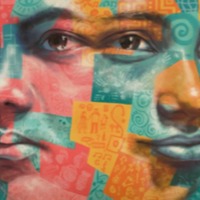
I was captured together with Anyang Anei during the last dry season. All the girls were kept separate from the boys on our long walk. I had to lead the goats and was beaten on the way. The boys were beaten even more. Their legs were tied at night. We were given leftovers from slaughtered goats.
I was taken to a man by the name of Hadi in a village called Adeela. Hadi treated me well and said he would give me in marriage to one of his sons one day. Hadi had many other slaves. I was not allowed to play with other children. I slept in the kitchen on a plastic sheet. My master didn’t call me by my Dinka name, but instead called me Howah, I have no idea why. I refused to attend the mosque and was beaten for that. But they didn’t send me there again.
Hadi is a rich cattle owner and has a big house surrounded by a fence. His family ate three times per day. My job was to wash the plates and do other domestic work. I was given only leftovers to eat.
Narrative as told to Christian Solidarity International, January 1999, in Northern Bahr El Ghazal, Sudan.









